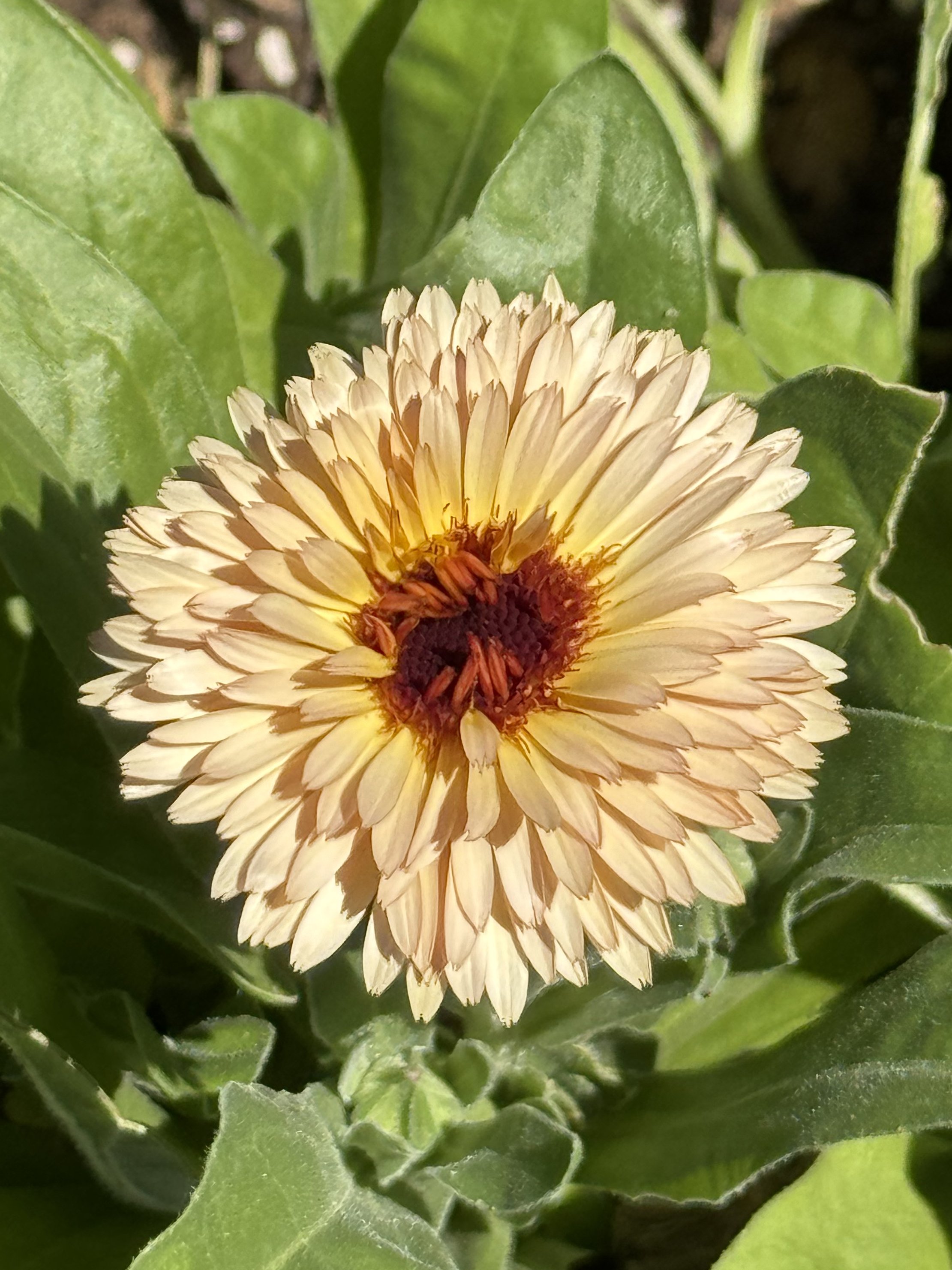Growing Instructions
Calendula prefers the cooler parts of the growing season and can tolerate light frosts easily. It’s an annual (or short-lived perennial in warmer regions). You can direct-sow calendula seeds as soon as the soil can be worked in early spring. Sow seeds about 1/4" deep and cover them completely since they germinate best in darkness. Plant in reasonably fertile, well-draining soil. Seeds will sprout in 1-2 weeks. Space plants about 6"-12" apart. Calendula grows well in full sun to part sun. Keep the soil evenly moist. Don’t let it dry out for long periods, as that can stress the plants. Deadhead the flowers to encourage the plant to keep flowering abundantly. If you neglect deadheading, calendula will slow down flower production since it’s trying to set seed.
| 👍 Good companions | Tomatoes (calendula repels tomato pests), beans, brassicas, or lettuce (calendule can act as a trap crop these), nearly any vegetable (calendula attracts pollinators) | ||
| 👎 Bad companions | No known bad companions! | ||
| Growing zones | 2-10 | Crop type | Annual |
| Crop difficulty | Easy | Seed type | Open-Pollinated |
| Sowing method | Direct Sow Recommended | Containers? | Yes |
| Sun req. | Full/Partial Sun | Ideal soil temp. | 60-75°F |
| Days to germination | 7-14 days | Days to maturity | 50-60 days |
| Seed spacing | 6"-12" | Row spacing | 6"-12" |
| Seed depth | 1/4" | Needs support? | No |


